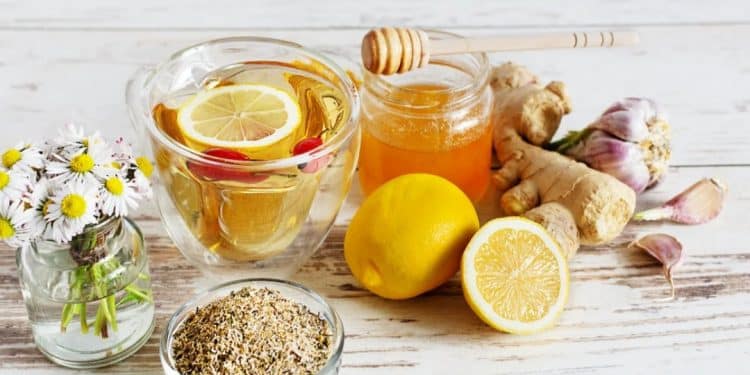Herbal remedies have been an integral part of human history, utilised for millennia across various cultures as a system of medicine. Their roots can be traced back to ancient civilisations, where herbs were revered for their healing properties and cultural and spiritual significance. In many traditional medicine systems, such as Traditional Chinese Medicine, Ayurveda, and Native American healing practices, herbal compounds form the foundation of therapeutic protocols to restore balance and promote well-being.
Throughout history, people have relied on the natural world, harnessing the benefits of plants to address acute and chronic ailments. These remedies often involve using leaves, roots, flowers, and whole plants, which are processed to extract their beneficial compounds. The wisdom of these ancient practices has been passed down through generations, reflecting a deep understanding of the interactions between humans and their environment.
Herbal Remedies for Common Health Issues
As we explore the 10 top herbal remedies featured in this post, we will delve deeper into their historical context, preparation methods, and applications in managing everyday health concerns. This comprehensive understanding will underscore the value of integrating these time-honoured practices into contemporary wellness strategies.
1. Ginger for Digestive Health: Ginger root, a common spice in kitchens worldwide, is well-known for its exceptional health benefits. Whether consumed as tea or added to meals, ginger is revered for its ability to support digestive health. It contains gingerol, a powerful compound that not only adds flavour but also aids in maintaining a healthy digestive system.
2. Turmeric for Inflammation: Turmeric, a vibrant yellow spice derived from the Curcuma longa plant, has been used for centuries in traditional medicine. Its active compound, curcumin, possesses potent anti-inflammatory properties, making turmeric a popular choice for those seeking natural remedies. Studies have shown that curcumin can help reduce markers of inflammation in the body, thereby offering relief to those suffering from inflammatory conditions. It can benefit conditions like arthritis and muscle soreness, making it a staple in many natural health regimens.
3. Chamomile for Sleep: Chamomile tea might be the answer if you struggle with insomnia or restless nights. Known for its calming effects, it’s a gentle way to help your body relax and prepare for sleep. The active compounds in chamomile, particularly an antioxidant called apigenin, bind to receptors in the brain that promote sleepiness and reduce insomnia. When consumed before bedtime, chamomile tea can help calm the mind, making it easier to drift into a peaceful sleep. Many people feel more relaxed and less anxious after a warm cup of chamomile tea, preparing their bodies for a good night’s rest.
4. Echinacea for Immune Support: Echinacea is celebrated for boosting the immune system. Using it at the onset of colds can reduce the duration and severity of symptoms. The active compounds in echinacea, including phenols and polysaccharides, are believed to stimulate immune function. Regularly consuming this herb may help your body combat colds, flu, and other infections. Additionally, studies suggest that echinacea can reduce the severity and duration of these illnesses, making it a valuable ally during flu season.
5. Peppermint for Headaches: Peppermint is known for its refreshing scent and flavour, but it also possesses medicinal properties that effectively alleviate headaches. The menthol in peppermint oil can help soothe muscle tension, which is often a significant contributor to headache pain. This natural remedy can be particularly beneficial for tension headaches, as it helps to relax the surrounding muscles and promote blood circulation. There are several effective ways to use peppermint for headaches. One popular method is to apply diluted peppermint oil topically on the temples and the back of the neck. Gently massaging the area can further enhance its effects.
6. Lavender for Stress Relief: Lavender (Lavandula) has been used for centuries for its aromatic properties, but modern research has highlighted its potential for stress relief. Studies have shown that lavender essential oil can lower heart rate and blood pressure, contributing to a general sense of calm. Inhaling lavender fragrance can stimulate areas in the brain that help regulate emotions, making it a powerful ally in the fight against stress. Adding a few drops of lavender oil to a diffuser can create a serene atmosphere in your home. Alternatively, you can try adding dried lavender to bathwater or using lavender-infused products for skin care.
7. Garlic for Heart Health: Research indicates garlic can help lower blood pressure and cholesterol levels, which is vital for a healthy heart. The active compound in garlic, allicin, relaxes blood vessels and improves circulation. This not only reduces hypertension but also decreases the risk of heart disease. Incorporating garlic into meals can be an effortless way to enhance your diet and promote heart health. Getting the heart-healthy benefits of garlic is quite simple. You can consume it raw, cooked, or even in supplement form. Add fresh garlic to your salads, soups, and stir-fries to maximise benefits.
8. Aloe Vera for Skin Ailments: Aloe vera is a soothing remedy for burns and skin irritations. Its natural gel hydrates and promotes faster skin healing. This remarkable plant is packed with vitamins, minerals, and antioxidants, making it a powerful ally for skin health. The gel extracted from its leaves provides intense hydration without irritation, making it ideal for soothing dry or damaged skin. Its anti-inflammatory properties can calm redness and swelling, especially beneficial for conditions like eczema and psoriasis. Incorporating aloe vera into your skincare routine is simple and effective. You can apply the fresh gel directly from the leaves to the affected areas.
9. Valerian Root for Anxiety: Valerian root is often used as a natural sedative. It’s beneficial for individuals looking to manage anxiety or improve sleep without the side effects of pharmaceutical options. The active compounds in valerian root, including valerenic acid, are believed to influence the brain’s neurotransmitters, promoting relaxation and enhancing sleep quality. For those struggling with anxiety, the calming effects can help ease racing thoughts and tension, making valerian root an appealing option. While valerian root is generally considered safe for most people, it is essential to use it responsibly. It is often available in various forms, including teas, capsules, and tinctures.
10. Cranberry for Urinary Health: Cranberry juice is well-known for preventing urinary tract infections (UTIs). Its active compounds help keep bacteria from adhering to the bladder wall. The compounds in cranberries, particularly proanthocyanidins, help inhibit the adhesion of bacteria to the urinary tract walls. This mechanism reduces the likelihood of infection, making cranberries a natural preventive strategy for those prone to UTIs. You can enjoy fresh cranberries in smoothies, add dried cranberries to salads, or sip on unsweetened cranberry juice. Choosing cranberry products without added sugars is essential to maximise health benefits.
Conclusion: Integrating these herbal remedies into your wellness routine can be a powerful way to tackle common health issues naturally. Remember to consult with a healthcare professional before starting any new treatments.










